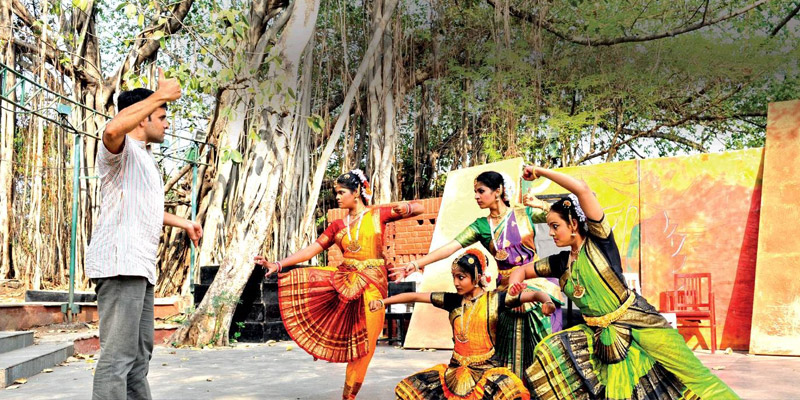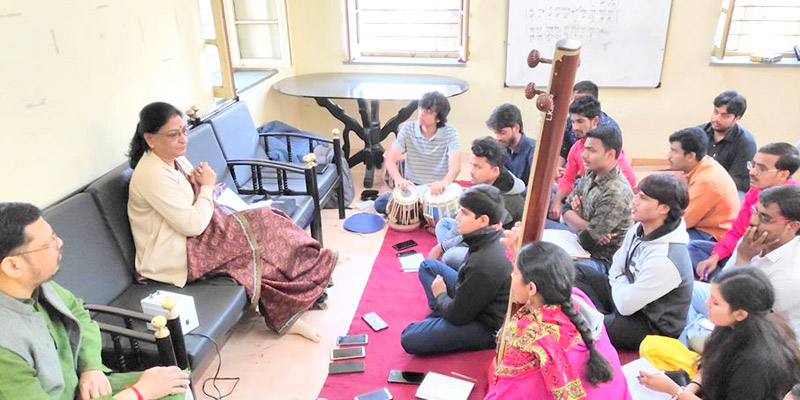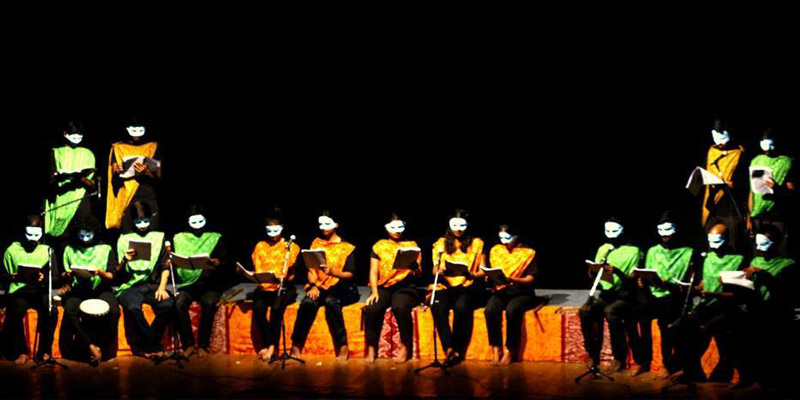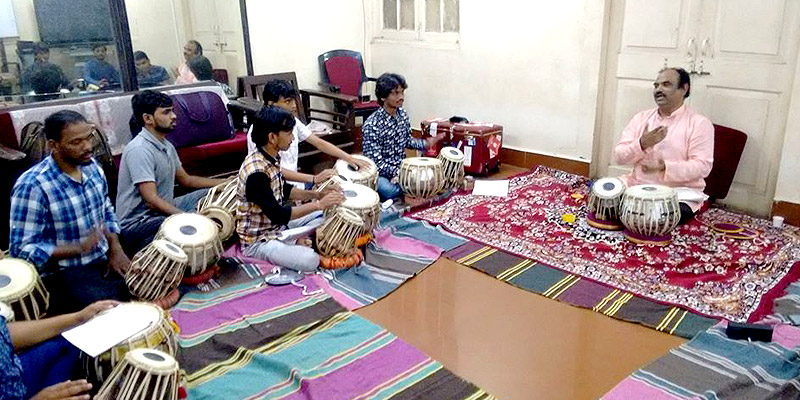Supported by the Tata Trusts, the Centre for Performing Arts (CPA) or Lalit Kala Kendra at the Savitribai Phule Pune University implemented a three-pronged approach to fostering the learning and practice of the performing arts
Established in 1987 by the Savitribai Phule Pune University (formerly University of Pune), the Centre for Performing Arts (CPA) or Lalit Kala Kendra was set-up to offer graduate and post-graduate courses in Music, Dance and Theatre. The courses have a strong focus on language and instructions are conveyed in Hindi, Sanskrit and Marathi. The curriculum incorporates the guru-shishya tradition of paying homage to the age-old pedagogical tradition of learning and practice in the performing arts.
Considered as a leading centre for performing arts in Western Maharashtra, CPA functioned within the university, as a self-supported entity. While this enabled them autonomy on their programmes, it however posed greater disadvantages since they were expected to be financially independent. All their initiatives therefore were designed and implemented based on grants that the centre had to raise.
In 2004, a report titled Towards a Workplan for the Arts and Culture Portfolio was commissioned by the Sir Ratan Tata Trust. This enabled the Trusts to classify cultural institutions across India and map out the extent and nature of support possibilities. CPA was one of the institutions identified as a result of the exercise. At the time, the institution was struggling to reinvent their programme intervention owing to a shortage of funds. In 2005, the Trusts encouraged them to develop a detailed proposal in a three-year time frame towards the publication of pedagogical materials in the performing arts, capacity building of faculty and students, and to expand their performing arts outreach programme.
In 2006, CPA received a programme grant from the Tata Trusts, and Prof Satish Alekar, the then-Head of the Department of CPA went on to design and implement the project in a three-pronged approach.
The first intervention was new curriculum development comprising material teaching of dramaturgy and movement, history of performing arts, theoretical approaches of Hindustani classical music, dance and Indian theatre, lighting and set design. The second was capacity building of faculty members through an exchange programme with affiliate institutions in India and abroad, the establishment of conferences and seminars in CPA and a guru-in-residence programme for department students shadowing a mentor of their respective art form in the centre followed by an on-location secondment. The third was strengthening their performing arts outreach by creating six grassroots-based outreach centres in western Maharashtra to showcase theatre productions developed by CPA as a hub and spoke model of showcasing between Pune and the region. The network centres were based in Nasik, Ahmednagar, Karad, Kohlapur, Kakavali and Sholapur. They would host 162 performances (9 per year x 6 centres) in three years building a strong audience base, a platform of critical analyses of the works presented and interest amongst other regions to also adopt similar initiatives.
The new curriculum development provided the first visible aspect through the grant; students had access to vast material for their studies and research. It also enabled the university to ensure periodical upgrades in the curriculum even after the grant ended as evident from their website. The capacity building strand saw faculty members partaking in conferences and workshops across India and globally and enabled them to host similar initiatives in CPA as a reciprocal arrangement. The guru-shishya programme saw students shadow their mentors for the first time across key cultural centres including Kalakshetra, Kadamb, Adishakti and Sangeet Research Academy. The outreach strengthening initiative was the major area of their activity and the location from where the project continued to receive its distinctiveness. CPA was able to build six key network centres in association with local agencies that continued to host theatre showcases with their own funds at the end of the grant. Furthermore, requests for hosting the showcases emerged from cities in Gujarat, Goa and North Karnataka, enabling the performances a wider geographical access. In 2008, the outreach initiatives front-lined as case study in the Trusts’ Annual Narrative Report.
The outcomes from the grant also enabled CPA its sustainability. Today, it continues to be a key vertical of the Savitribai Phule Pune University which, along with a series of new partners, funds initiatives for the institution. Moreover, the outcomes of the grant enabled the Trusts to ascertain the importance of making field and programme-based support in Arts and Culture, a mandate it continues to follow to this day.
— Arnab Banerjee




